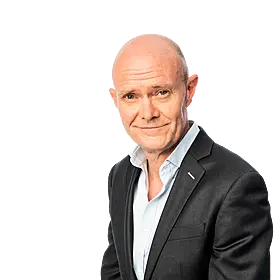The modern focus on mental health risks diluting the seriousness of mental illness and spreading resources too thin, according to journalist and author Ella Whelan.
On Newstalk Breakfast this morning, the What Women Want author said it was welcome that the stigma surrounding mental health has been challenged in recent years; however, she said she believes the pendulum has now “swung the other way” in some cases.
“I think there is a real difference between having a serious approach to mental health services and properly funding them and giving people access to counselling or whatever it is they really need and … suggesting that everyone who is stressed or anxious has mental health issues,” she said.
“The idea we have to have mental health advisors in schools or people who have physical ailments should also immediately be offered mental health services.
“There is news out in the UK that NICE has recommended that people who suffer from very bad acne should also be offered mental health treatment.
“These kinds of things I think dilute the seriousness of what it is to have mental health illness and actually spread resources too thin so those who really need to see a doctor can’t while the rest of us are told that normal emotions like stress and anxiousness are something to be worried about.”
Mental health
She said she believes the current attitude to mental health in schools is “really damaging.”
“What we are saying is we need counselors or therapists in classes to help kids with exam stress,” she said.
“If your kids aren’t stressed around exams, they’re not doing it right; they are not working hard enough.
“There are positive aspects to having those blue days. You only really enjoy the highs of life and joy and love and all those things if you have an understanding of the lows.
“Are we going to be fake all the time and pretend we need help from professionals for the normal aspects of life?”
Social media
She said narrative around mental health on social media can dilute the seriousness of mental health challenges.
“It is very good that, in the round, stigma has been challenged because historically people who had mental health problems have been not just stigmatised but attacked and isolated - and that is a very bad thing,” she said.
“It is good that we are more open in saying that it is not a bad thing to have a mental health illness. That it doesn’t make you a bad person or that you should be ostracised.
“However, I do think the pendulum has now swung the other way where you kind of get social capital or applause, particularly online, for not just airing your dirty laundry but kind of bearing all your scars in this way that I think isn’t very helpful for people who do suffer with mental health illnesses.
“It is like it is a good thing to promote the idea you are vulnerable or fragile or needy when actually we have forgotten those aspects of the other side of mental health which is having a sense of strength or a sense of resilience – all these things are now taboo and I think that is probably a problem.”
You can listen back here:









